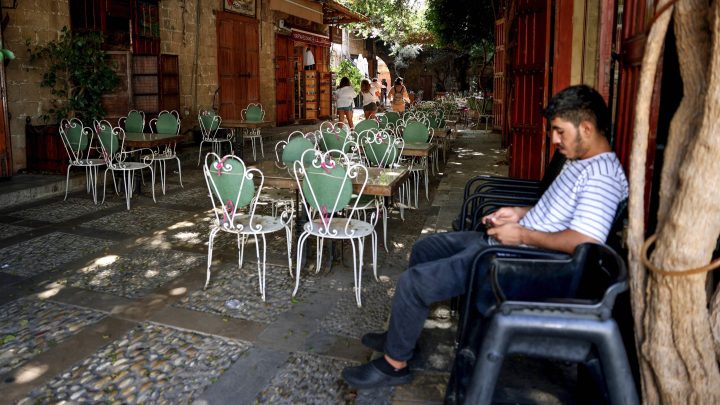
Lebanon feels the economic shock of war

This story was produced by our colleagues at the BBC.
Joseph Sayegh returned to Beirut last summer after a decade in Paris. He opened his bakery, Levant, a few weeks before the war in Gaza began.
“All the foreigners that were in Beirut — be it the tourists or the ones who were living here, expats or volunteers with [nongovernmental organizations] — they just left within days,” he said.
Israel began striking the Gaza Strip after Hamas launched an attack on southern Israel on Oct. 7, in which about 1,200 people were killed and 240 more were taken hostage. Meanwhile, 24,000 people have since been killed in Gaza, according to the Hamas-run health ministry. More than two-thirds of those killed in Gaza were women and children.
Since the outbreak of war, Hezbollah, a Lebanon-based militant group and political party, has traded fire with Israel across Israel’s northern border, and a drone strike in Beirut killed a senior Hamas leader in early January. Tens of thousands of people have fled their homes in southern Lebanon, while many countries have advised their citizens against traveling there. Several airlines have cut flights.
This has had a significant impact on vital tourist revenue, according to Sami Zoughaib, an economist at the Policy Initiative think tank in Beirut.
“If we had assumed a tourist revenue similar to what we had last year, for example, of around $1,500 per passenger, we’re looking at something closer to around $300 million in losses only from the tourist revenues,” he said.
Fewer flights and visitors have also reduced the flow of crucial foreign currency into Lebanon, Zoughaib said, which has a cash-based economy after the collapse of its banking sector.
During the first month of the war, the Lebanese restaurant sector suffered an 80% drop in business, hitting owners like Joseph Sayegh hard.
“Sales went down,” he said. “Coming back here, I knew that at some point eventually something would happen. I didn’t expect that it will be that big and it would be that quick.”
The holiday season drew some Lebanese expats back from abroad, bringing with them fresh dollars and euros. Danny Bou Maroun, a Lebanese-American music producer, said the uncertainty had affected the mood in Beirut.
“Things are starting to feel a bit normal. Beirut is just pretty busy but not nearly as much as usual,” he said. “This year, it feels off. Obviously things are uncertain and no one knows what’s going to happen.”
Maya Noun, from the syndicate that represents restaurant owners in Lebanon, said hospitality companies are determined to keep their doors open.
“The restaurant sector has always been one of these sectors that were really behind the economy in Lebanon,” she said.
She added that they’ll keep operating as the war continues — with no end in sight.
There’s a lot happening in the world. Through it all, Marketplace is here for you.
You rely on Marketplace to break down the world’s events and tell you how it affects you in a fact-based, approachable way. We rely on your financial support to keep making that possible.
Your donation today powers the independent journalism that you rely on. For just $5/month, you can help sustain Marketplace so we can keep reporting on the things that matter to you.












